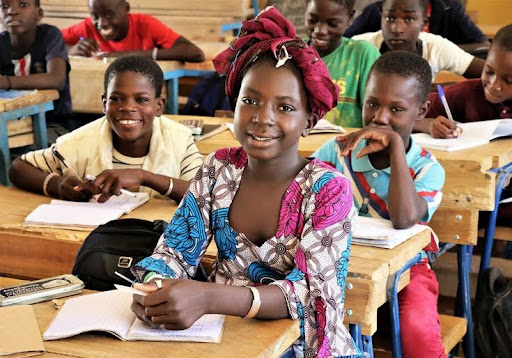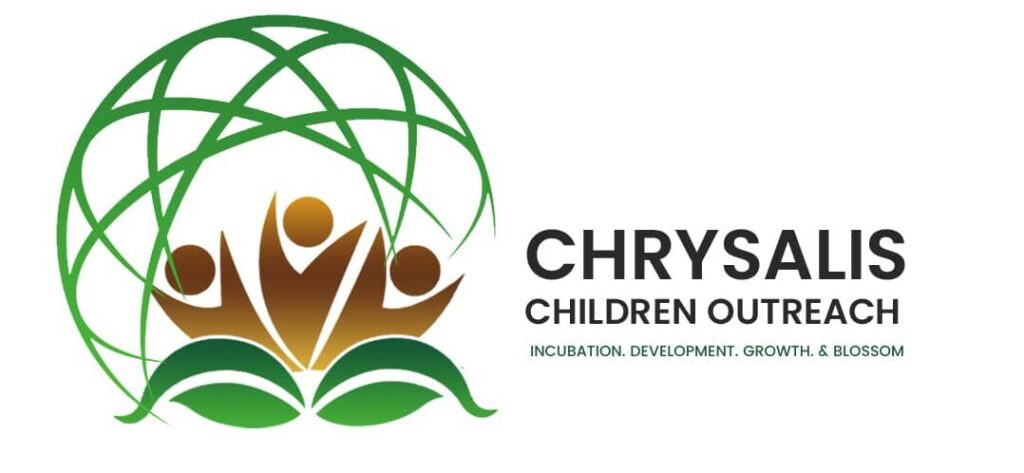In Nigeria’s Niger Delta, a land full of oil, but many children still don’t have the same chances as others to grow, learn, and succeed.
Even though the land is resourceful, life can be very hard for young boys and girls. Many of them don’t get the help they need to do well in school or to reach their dreams.
They often face big problems at home and in their communities, like not having enough money, safe places to play, or people who support them.
These kids need school, they need someone to talk to, someone who cares, and someone who can guide them. That’s where the power of mentorship makes a difference.
When someone takes time to listen, give advice, and help a child believe in themselves, everything can start to change. Our group works with children in this area every day, and we’ve seen how much they grow when they have a mentor.
Mentorship for disadvantaged children gives them hope, teaches them life skills, and shows them that their dreams are possible.
It helps them stay strong, keep going, and feel proud of who they are. And when one child begins to grow, their family and even their whole community can grow, too.
Understanding The Power of Mentorship in Children’s Development
The power of mentorship is about helping a child believe in themselves and showing them what they can become. When a caring adult takes time to listen, guide, and support a young person, something special happens.
Mentors become trusted friends and role models. They help kids feel more confident, learn new things, and dream bigger than they ever thought possible.
In places like the Niger Delta, many children face really tough challenges every single day. There’s not always enough money at home, schools may not have enough supplies, and the air or water can be dirty because of pollution.
Some kids also have to deal with problems in their families because of money or other struggles. All of this can make it hard for a child to feel safe or hopeful about the future.
That’s why having a mentor can be so powerful, it gives the child someone steady and kind who believes in them no matter what.
Studies show that when a child has a mentor, they are more likely to stay in school, make good choices, and get along better with other people.
They also learn big life skills like how to solve problems, talk clearly, and set goals for themselves. These are lessons they carry with them for the rest of their lives.
That’s why the power of mentorship is so important, it doesn’t just help with school. It helps kids grow in every part of life, from their hearts to their minds to their dreams.

The Unique Challenges of Children in the Niger Delta
To really understand why helping and guiding children is so important in the Niger Delta, we first need to look at the problems many of them face every day.
Even though this part of Nigeria has a lot of oil, many families still live in poverty. There are plenty of natural resources, but the people living there don’t always get to benefit from them.
A lot of children grow up in small villages where oil spills have hurt the land and water. Their parents may no longer be able to fish or farm like they used to, which makes life harder for everyone.
Many schools don’t have enough classrooms, books, or trained teachers. It’s also hard to find good doctors or clinics nearby, and the dirty air and water often make kids sick.
Because of all this, it can be really hard for a child to picture a bright future. They may not know what they want to be or how to get there. That’s when having someone to guide and support them can make a big difference.
When someone shows them kindness, listens to them, and believes in them, it gives the child a reason to hope again. Even in tough times, this kind of support can help them see new possibilities and keep going.
The Story of Ebi: How Mentorship Changed a Life
Here’s a story of Ebi, a young boy from a fishing village in Bayelsa. When we first met Ebi, he was 10 years old and had stopped attending school.
His father’s fishing business had collapsed after an oil spill, and the family couldn’t afford school fees. Ebi spent his days helping his father try to salvage their livelihood, his education all but forgotten.
Through our community programme, Ebi was matched with Mr. Tamuno, a retired teacher who volunteered as a mentor. Mr. Tamuno saw intelligence and curiosity in Ebi that others had missed.
He began meeting with Ebi three times a week, first helping him catch up on basic reading and maths skills. But Mr. Tamuno offered more than academic help; he listened to Ebi’s concerns, celebrated his small victories, and helped him believe in himself again.
Mr. Tamuno advocated for Ebi to receive a scholarship to return to school. He helped Ebi’s family apply for a microfinance programme that allowed them to start a small trading business.
Five years later, Ebi is now at the top of his class and dreams of becoming an environmental scientist to help restore the Delta’s ecosystem.
This is the power of mentorship in action, not just changing a child’s circumstances but changing how they see themselves and their future.
Core Benefits of Mentorship for Disadvantaged Children
Mentorship for disadvantaged children offers numerous benefits that address both immediate needs and long-term development. Here are the key advantages of children mentorship that we’ve observed in our programmes throughout the Niger Delta:
1. Educational Support and Motivation
One of the best examples of the power of mentorship can be seen in how it helps kids do better in school.
Mentors help children with their homework, explain things that are hard to understand, and remind them why it’s important to go to school every day. But more than that, mentors help children see why learning is important for their future.
In some communities, like those in the Niger Delta, families sometimes need kids to help earn money instead of going to school. It can be hard to think about the future when a family is just trying to get by each day.
Mentors help children see that the schoolwork they do today can lead to better chances and more choices tomorrow. This new way of thinking can really change a child’s life.

2. Emotional Support and Resilience Building
The power of mentorship is perhaps most profound in its emotional impact. Some children live in tough situations like poverty, problems at home, or violence in their communities.
These kids need help understanding and dealing with their emotions. Mentors give them a safe and caring space to talk about their feelings, ask questions, and learn healthy ways to cope during hard times.
In our programmes, we’ve seen children change in amazing ways. Some kids who used to be quiet and afraid are now brave, smiling, and full of hope because they had someone who cared. This kind of emotional strength helps them grow in every other part of life, too.
3. Expanded Horizons and Opportunities
Many disadvantaged children in the Niger Delta don’t get to see much outside their own towns or villages. The power of mentorship includes helping these children see a bigger world.
Mentors tell them stories about different kinds of jobs, teach them new skills, and sometimes even take them to visit new places.
Mentorship for disadvantaged children also means helping them find things they wouldn’t get on their own, like scholarship programmes, fun learning workshops, or local events.
These experiences help them believe that there’s so much more they can do and become in life.
4. Positive Role Modeling
One of the most important parts of the power of mentorship is giving children good role models to look up to. In some communities, many adults may not have jobs or might make unhealthy choices, like using harmful substances.
That’s why it really helps when children have mentors who show them how to live in a good and responsible way.
Mentors teach things like being honest, working hard, showing respect, and being kind, just by the way they live. Children don’t learn these things from being told, but by watching and spending time with someone they trust.
Implementing Effective Mentorship Programmes in the Niger Delta
Understanding the power of mentorship is one thing, but using it well is even more important. From our experience running mentorship programmes across the Niger Delta, we have found some important things that help make the most of the advantages of children mentorship:
- Cultural Relevance and Community Involvement
For mentorship for disadvantaged children to work well in the Niger Delta, programmes need to respect the local cultures and traditions.
Mentors should understand the communities they help, including the local languages, customs, and values. When possible, it’s best to choose mentors from the same communities as the children, because they understand each other better.
It’s also very important to involve community leaders right from the planning stage. Their support makes the mentorship programmes trusted, and they can help find the children who need help and good mentors from the local area.
Training and Supporting Mentors
To fully realise the power of mentorship, mentors need proper training and ongoing support. Many well-meaning adults want to help children but may not naturally know how to build effective mentoring relationships.
Our training programmes cover basics like child development, effective communication, boundary-setting, and child protection principles.
We also provide regular meetings and mentor support groups where volunteers can share challenges and share good experiences.
Structured Yet Flexible Programmes
The biggest advantages of children mentorship come when the mentor and child have a strong and caring relationship that mixes clear plans with a bit of flexibility.
Good programmes have set goals and regular times to meet, but they also let the relationship grow in a way that fits each child’s needs and interests.
In the Niger Delta, where things can change quickly, being flexible is really important. Sometimes schools close, families have extra duties, or there may be floods during the rainy season.
Mentors and children need to be able to adjust to these changes.
Measuring Success: The Impact of Mentorship in the Niger Delta
How do we know the power of mentorship is helping? We look at both numbers and real-life stories to understand the advantages of children’s mentorship. In our programmes, we check things like:
- How often children go to school and how well they are doing
- Behavioural incidents and improvements
- How many children take part in and finish the programme
- Long-term outcomes like secondary school graduation
But we also look at changes we can see and feel, like:
- Children becoming more confident and speaking up
- Improved relationships with peers and family members
- Children setting goals and dreaming about their future
- Kids joining in more activities in their community
When we see a shy child start participating in group activities or hear a parent report that their child now talks about university plans, we’re witnessing the power of mentorship in action.
Challenges and Solutions in Mentorship Programmes
Even though the power of mentorship is very strong, starting mentorship for disadvantaged children in the Niger Delta can be quite challenging.
Limited Resources and Infrastructure
Many communities lack basic facilities needed to run mentorship programmes. There might not be a place to meet, transportation might be difficult, and sometimes phones or the internet don’t work well.
Solution: We’ve had good results by using mobile mentorship. This means mentors go to where the children already are, like schools or community centres.
We also provide mentors with simple supply kits and, when we can to help them get around more easily.
Mentor Recruitment and Retention
Finding enough qualified mentors who are ready to give their time can be difficult, especially in communities where many adults work long hours for basic survival.
Solution: To support mentorship for disadvantaged children, we cast a wide net for mentors, looking for mentors in many places, not just the usual ones.
We invite university students, retired people, and working adults who might have free time. We also provide mentors with training certificates and community recognition that can benefit their own career development.
Cultural and Family Barriers
Some families might not trust mentorship programmes. They may think the mentors are trying to get too involved in their private lives.
Solution: To help support mentorship for disadvantaged children, we include parents and guardians right from the start. We hold special family meetings to explain how the programme works and why it helps.
When trusted people in the community also support the programme, families are more likely to feel safe and join in.
The Future of Mentorship in the Niger Delta
As we look ahead at the future, there are so many exciting possibilities for expanding the power of mentorship across the Niger Delta region.
Technology offers new ways to connect mentors and mentees even when physical meetings aren’t possible. We also use group mentorship so that one mentor can help many children at once when there aren’t enough mentors for everyone.
We’re working on better ways to show the advantages of children mentorship to leaders and people who fund programmes.
When they see how mentorship helps with school, keeps children out of trouble, and makes communities stronger, they are more likely to support it.
How You Can Support Mentorship in the Niger Delta
Now that you’ve learnt about the power of mentorship, you might be thinking, “How can I help?” Here are some simple ways to get involved:
- Become a mentor – If you live in the Niger Delta, you can volunteer your time to guide and support a child through a local mentorship programme.
- Support mentorship organisations – Donations of money, supplies like books, or even spaces for activities make a huge difference.
- Advocate for mentorship – Help spread awareness to your friends, family, and community about the importance of mentorship programmes.
Partner with us – If you represent a school, business, or community organisation, we’d love to team up and bring mentorship to more children in your area.

Together, we can make a big difference. One child at a time.
The Lasting Impact of Mentorship
The power of mentorship doesn’t just help one child, it helps the whole community.
When we support mentorship for disadvantaged children in the Niger Delta, we’re making life better not just for today, but for the next generation.
The advantages of children mentorship go beyond school and learning. These children grow up to become strong leaders, teachers, nurses, or business owners. T
hey help others, take care of their families, and even become great parents who understand the importance of guidance and support for their own children.
This is how mentorship keeps making good changes, over and over again. It’s like planting a seed that grows into a strong tree and gives fruit for years.
Every child deserves someone who believes in them. Mentorship gives them that chance and helps the whole Niger Delta grow stronger.
